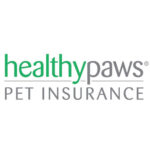Best Pet Insurance For German Shorthaired Pointers In 2025
In my professional assessment, Healthy Paws is the top-rated option for insuring German Shorthaired Pointers.
We’ve saved shoppers an average of $350 per year on their pet insurance.
German Shorthaired Pointer owners naturally worry about their pet’s health. Purebred German Shorthaired Pointers have a higher risk of genetic health problems compared to mixed breeds. Unfortunately, 80% of pet owners can’t afford an unexpected $500 vet bill. Pet insurance can help lessen that financial burden.
This review will cover some of the best pet insurance options for German Shorthaired Pointers, guiding you to the right policy. Pet insurance, like human health insurance, provides better treatment options and reduces out-of-pocket costs. The good news is that it’s far less expensive than private health insurance.
Best Pet Insurance Companies For German Shorthaired Pointers, 2025
Different pet insurance providers for German Shorthaired Pointers share common goals of pet care and financial protection, yet they vary in their offerings. The best choice for one German Shorthaired Pointer may not be suitable for another.
Here’s our assessment of the best pet insurance companies for German Shorthaired Pointers.



Compare The Best Pet Insurance Companies For German Shorthaired Pointers
We've reviewed several pet insurance options for German Shorthaired Pointers, each with its own strengths.
| Overall Rating | Best For | Waiting Period | Reimbursement % | Benefit Limit | Get A Quote | |
|---|---|---|---|---|---|---|
| Healthy Paws |
|
Overall |
15 days accident/illness |
70%, 80%, 90% |
Unlimited annual and lifetime |
Instant Quote |
| Lemonade |
|
Cheap |
2 days accident, 14 days illness |
70%, 80%, 90% |
$5,000 to $100,000 annually |
Instant Quote |
| Many Pets |
|
Puppies |
15 days accident/illness |
70% or 80 (Most States) |
Unlimited annual and lifetime |
Instant Quote |
| Pumpkin |
|
Older Dogs |
14 days accident/illness |
90% |
$10,000, $20,000 or unlimited |
Instant Quote |
| Spot |
|
Multiple Pets |
14 days accident/illness |
70%, 80%, 90% |
$2,500 to unlimited |
Instant Quote |
Detailed Reviews Of The Best German Shorthaired Pointer Insurance Companies
Best Overall
Key Statistics
Why We Like Them
⇅Healthy Paws stands out in pet insurance with unlimited claim payouts and no per-incident maximums or caps. This ensures you won’t have to make difficult decisions about your pet’s care due to policy limitations. Their policy is clear and straightforward, without costly add-ons, and they allow you to visit any licensed veterinarian. Claims are processed quickly through their mobile app or website, typically within two days.
Benefits & Drawbacks
⇅- You won't encounter any caps on annual or lifetime payouts.
- You can claim a refund within 30 days.
- Expect a quick resolution as we process most claims within 48 hours.
- It might be possible to pay the veterinarian directly. ✓
- No customary health check is provided. ✘
Runner-Up For Best Overall
Key Statistics
Why We Like Them
⇅Lemonade was identified as the most affordable pet insurance for German Shorthaired Pointers. While their coverage limits range from $5,000 to $100,000 per year, similar to other companies we reviewed, they do not offer unlimited coverage like Healthy Paws. Lemonade’s standard policy covers accidents and illnesses such as cancer, heart disease, broken bones, and hip dysplasia, which is common in older German Shorthaired Pointers. However, they do not cover preexisting conditions, dental problems, behavioral issues, or elective procedures, which is typical of most insurers.
Benefits & Drawbacks
⇅- Elect to take part in a wellness package.
- Two-day waiting time for accident protection to begin.
- Enjoy a 10% discount by bundling pet insurance with Lemonade's home, renters, or car insurance policies. ✓
- There is no pet telehealth hotline available 24/7.
- Vet exam expenses can be covered for an added fee.
- There's no coverage provided for prescription food or microchipping. ✘
Best For Puppies
Key Statistics
Why We Like Them
⇅ManyPets offers excellent insurance options tailored for puppies. Rates are not influenced by pre-existing conditions, and treated illnesses may be covered after 18 months. Unrelated conditions remain eligible for coverage. Young German Shorthaired Pointers, like all puppies, are susceptible to illnesses like poisoning, ingestion of foreign objects, and accidents due to their youthful energy. Early insurance coverage minimizes the risk of exclusions for pre-existing conditions as they grow older.
Benefits & Drawbacks
⇅- Available in over 40 states
- Includes coverage for veterinary consultations concerning illness and accidents.
- Features customizable health plans. ✓
- There's no 24/7 availability for pet telehealth consultations.
- Coverage does not apply to pet behavior therapy.
- Insurance does not include alternative healing modalities. ✘
Best For Older Dogs
Key Statistics
Why We Like Them
⇅As German Shorthaired Pointers get older, they face genetic illnesses such as cruciate ligament issues and hip dysplasia that can lead to costly treatments. Pumpkin pet insurance doesn’t have specific waiting periods for these conditions and covers vet exam costs for treating older German Shorthaired Pointers. They offer a wide range of coverage options for common German Shorthaired Pointers health problems, including surgeries and dental issues, with a choice of three deductibles and a standard reimbursement rate of 90%.
Benefits & Drawbacks
⇅- Available choice for wellness participation
- Cost savings when you insure several pets together.
- A 90% reimbursement is available for dogs and cats over 8 weeks old ✓
- There's no pet health hotline that operates all hours of the day.
- They don't have a plan exclusively for accidents. ✘
Best For Multiple Pets
Key Statistics
Why We Like Them
⇅German Shorthaired Pointers owners often have multiple pets due to the breed’s friendly disposition. Spot offers a 10% discount for insuring more than one pet, resulting in significant savings. Their optional preventive care plan covers wellness services such as an annual vet visit, fecal test, and teeth cleaning, and includes coverage for certain vaccinations. Spot provides a 30-day money-back guarantee if you’re dissatisfied with their coverage or service. They also reimburse up to 90% of eligible vet bills and offer a 24/7 vet helpline. Additionally, you have the freedom to visit any U.S.-licensed veterinarian or specialist.
Benefits & Drawbacks
⇅- Involves microchip installation
- Choose a plan with a $100 deductible.
- Provides a 24-hour pet telehealth service line. ✓
- For accidents, there's a 14-day waiting period, compared to just 2 days with certain top competitors. ✘
Average Cost Of Pet Insurance for German Shorthaired Pointers
| Company | Deductible | Annual Reimbursement % | Monthly Price | Age of Dog |
| Healthy Paws | $500 | 70% | $70 | 5 year old |
| Lemonade | $500 | 70% | $40 | 5 year old |
| Spot | $500 | 70% | $73 | 5 year old |
| Healthy Paws | $500 | 80% | $37 | 1 year old |
| Lemonade | $500 | 80% | $21 | 1 year old |
| Spot | $500 | 80% | $54 | 1 year old |
| Healthy Paws | $500 | 70% | $38 | 3 month old |
| Lemonade | $500 | 70% | $29 | 3 month old |
| Spot | $500 | 70% | $83 | 3 month old |
Average Cost Of Typical Vet Procedures
| Typical Vet Procedure | Average Cost Of Procedure |
| Puppy vaccinations | $75-100 |
| Flea & tick prevention | $40-200 |
| Heartworm prevention | $24-120 |
| Spay or neuter surgery | $200-800 |
| Annual exam | $240-600 |
| Teeth cleaning | $200-500 |
| Microchip | $40 |
Average Cost Of Emergency Vet Procedures
| Emergency Pet Procedure | Average Cost Of Procedure |
| General consultation/exam | $100-$150 |
| General bloodwork | $80-200 |
| X-rays | $150-$250 |
| Ultrasound | $300-$600 |
| 1-2 day hospitalization | $600-$1,700 |
| 3-5 day hospitalization | $1,500-$3,500 |
| Wound treatment & repair | $800-$1,500 |
| Emergency surgery | $800-$2,500 |
| Oxygen therapy | $500 |
Is Pet Insurance Worth It For German Shorthaired Pointers?
Pet insurance safeguards you against unexpected vet bills. Many owners cover their pets’ medical care out of pocket, but most can’t afford a $1,500 emergency visit. Having the right insurance plan can make a big difference in how you approach your pet’s health. Whether insurance is worth it depends on your expectations. If your pet is undergoing treatment for a chronic condition, no insurer will help cover those expenses. However, if you know what your policy covers and choose one that fits your budget, you’ll likely consider it a good investment.
Common Health Issues For German Shorthaired Pointers
Purebred German Shorthaired Pointers are more likely to suffer from health problems. Over time, some breeders have overlooked genetic factors in their breeding practices, which has led to the spread of various health conditions within the German Shorthaired Pointers breed. This makes German Shorthaired Pointers more susceptible to genetic issues compared to other breeds.
Here are a few of the most common health problems German Shorthaired Pointers experience:
- Hypothyroidism
- Ear Infections
- Allergies
- von Willebrand’s Disease (vWD)
- Canine Epilepsy
- Osteochondritis Dissecans (OCD)
How To Find The Best Pet Insurance Company For You
Pet insurance plans differ in cost and options offered by different companies, which can complicate the selection process. Before applying for coverage, consider these tips to find the best plan for your pet.
Check Whether Your Pet Is Eligible
Insurance companies typically require puppies and kittens to be at least 6 to 10 weeks old for coverage. Older pets may not qualify for initial enrollment or might only be eligible for accident coverage. Once enrolled, most plans provide lifelong coverage as long as premiums are paid.
Research What’s Covered
Pet insurance plans usually help pay for surgeries, hospital stays, and medications if your pet is injured or becomes sick. However, some services come with additional fees or aren’t covered. For instance:
- Exam fees: Plans might cover treatments like X-rays or surgery but leave out the exam fee.
- Alternative treatments: Some plans include therapies like acupuncture and physical therapy, while others charge extra.
- Behavioral therapy: Not all policies cover treatments for behavioral issues like aggression.
- Prescription food: Special diets prescribed by your vet may not be covered by some plans.
- Dental care: Dental care coverage varies. Some policies may only cover dental illnesses like gingivitis if your pet had a recent cleaning, while wellness plans might include cleanings.
Pre-existing conditions, cosmetic surgeries, and breeding expenses are generally not covered.
Decide How Much Coverage You Want
Many pet insurance policies cap yearly payouts, but some do not have such limits. You must determine the amount that provides peace of mind for covering vet bills. If your pet is mostly healthy, you might only need to cover routine care costs for years. However, unforeseen surgeries or severe illnesses could result in substantial financial burdens.
Understand Reimbursements And Deductibles
Most pet insurance plans will reimburse you for part of your vet bill, usually offering options like 70%, 80%, or 90%.
Some plans pay a standard fee for treatments, which may be less than what your vet charges, meaning you’d cover the difference.
Most policies come with a deductible, which is the amount you must pay out of pocket before coverage starts. Deductibles can range from $100 to $250 or more. Some plans apply the deductible to each condition, while others apply it annually.
Lower deductibles and higher reimbursement rates often lead to higher premiums, while higher deductibles and lower reimbursement rates can reduce premiums.
Check Waiting Periods
Typically, insurance plans have short waiting periods, often around 14 days after purchase, before they cover general accident and illness treatments. During this time, medical expenses are not covered. Some plans have longer waiting periods for certain conditions, such as cruciate ligament injuries, which are common orthopedic issues in dogs. Cruciate ligaments help stabilize the knee, and injury can hinder a dog’s mobility.
Examine Extra Costs
Certain pet insurance providers offer coverage for routine services such as vet visits and vaccinations. Before enrolling, calculate if the higher cost is justified by comparing the annual premium of the wellness plan with your average yearly expenses for these services. Remember to review the specifics, as “wellness” coverage can differ between insurers.
Compare Quotes
The cost of pet insurance depends on the insurer and the coverage level selected. Some pet insurers offer discounts, such as reduced rates for insuring multiple pets. However, a discount doesn’t automatically mean it’s the best option. To find the most suitable pet insurance, compare quotes from multiple plans with similar coverage amounts, deductibles, and reimbursement limits.
Factors That Impact Cost Of Your Pet Insurance Policy
Pet insurance premiums, like health insurance, vary depending on:
- Your location. Veterinary costs in your area affect the price of your policy.
- Your pet’s age. Older pets typically come with higher premiums due to a greater risk of health problems.
- Your pet’s breed. Certain breeds have a higher likelihood of developing health conditions. For example, bulldogs and Boston terriers are prone to breathing difficulties, while larger dogs like German Shepherds often suffer from hip dysplasia. These risks are reflected in your insurance premiums.
- Deductibles and coverage limits. A lower deductible means less out-of-pocket costs, but it also leads to higher premiums. For example, choosing a $100 deductible over $500 will increase your premium.
Our Methodology
Opinions and ratings were based on assessments of insurer websites, customer feedback, reviews from other sources, and personal usage of pet insurance.
Quotes Analyzed
Years Of Industry Experience
Brands Reviewed
Research Hours
FAQs
Is pet insurance cheaper for purebred dogs?
The higher likelihood of genetic health issues in purebred dogs means insurance costs are generally higher for them compared to mixed-breed dogs.
What is the average cost of owning a German Shorthaired Pointer?
Expect to budget around $3,000 initially for vaccinations, food, grooming, and insurance, with costs lowering to approximately $1,900 per year thereafter.
What insurance do you need for a dog?
Pet insurance helps dog owners manage vet bills and ensure their dog remains healthy.
Sources
⇅Related Content
Pet Insurance Deductible Does Pet Insurance Cover Medication? How Does Pet Insurance Work?
Pet Insurance In Your Area
Pet Insurance Worcester MA Pet Insurance California Pet Insurance Colorado
